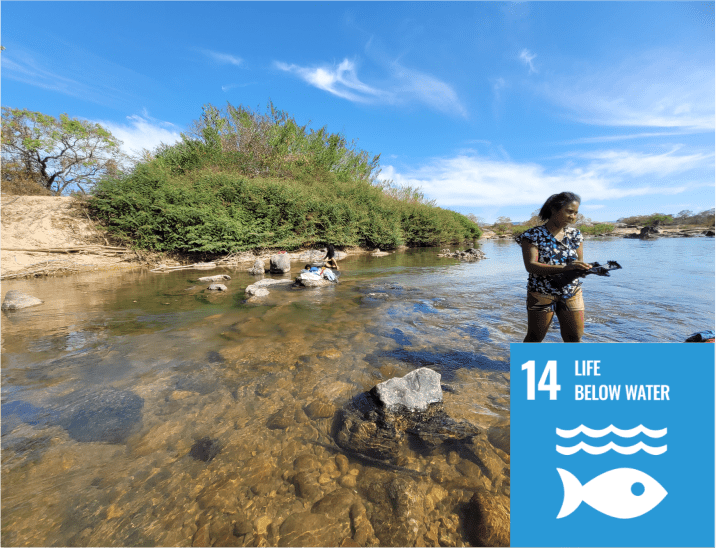SDG Goal 14 – Life Below Water

In India, Dalits are not recognised as traditional marine fishers, though several Dalit communities have been fish workers.
For instance, caste inequalities were reinforced in parts of the southern Indian state of Tamil Nadu after the 2004 Indian Ocean tsunami, as assistance was provided to people from dominant caste groups who described themselves as ‘fishermen’. In actuality, these groups employed Dalit fishers who were the affected by the disaster. As a result, the actual fishermen were overlooked in relief efforts.
Such denial of recognition not only impacts on the livelihood and social security net from the government (for instance by not issuing them identity cards that make them eligible for support during monsoon months), but also cause severe loss to conservation of marine ecosystems. Since Dalits are not recognised as traditional marine fishers, their knowledge of the seas and coastal mangroves are disregarded, and their shore-based habitations are delegitimised making them easy prey for displacement for tourism and other industrial development.
Take the case of the Koli, Dhiwar, Bhoi, Gabit and the Agri communities found in coastal districts of Maharashtra in India who have been involved in fishing for generations. Their lives and livelihoods are in danger due to depleting fish resources. The Dhiwars are fisherman and boatmen adept in various methods of river fishing. But they only find employment as workers.
The Agris also have been making salt for generations and they face huge occupational health problems, but there is hardly any intervention by the government. Over and above this, they are slowly getting displaced as government policy promotes manufactured salt.

